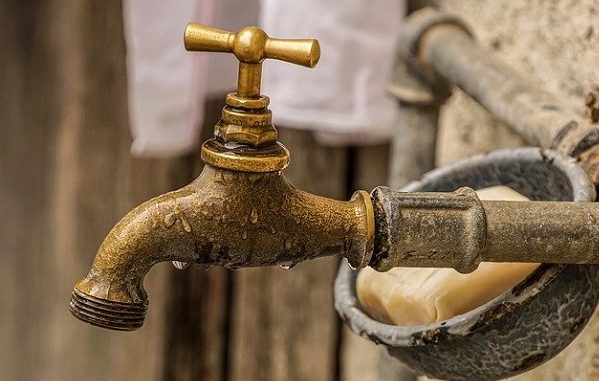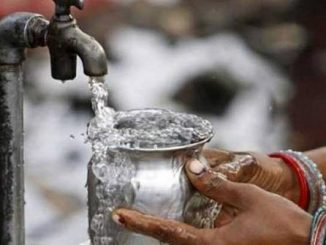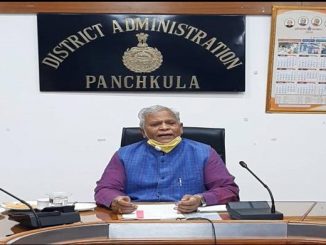
Sep 5: Morning hours are a time for gratitude for Munni Devi. A resident of Kolar village of Umariya district of Madhya Pradesh, her morning hours are busy like any other village woman, but she is very particular with her prayer routine. The deck is ready for prayers, and soon her tiny house is filled with the fragrance of incense and fresh flowers, and as Munni Bai puts tilak on the ‘tap’, her head bows with thankfulness and devotion. The well-decked tap is no less than a God’s idol to her as it brings water from the holy river ‘Son’, which is like little Ganga for her. Earlier she used to travel 150 Kilometres to Amarkantak (origin of the river) in a year or two for religious rituals but now the same river water post-treatment is supplied to her through a household tap connection.
The Jal Jeevan Mission implemented by the Ministry of Jal Shakti in partnership with States aims to provide adequate drinking water of prescribed quality on a regular and long-term basis to every rural household in the country by 2024. In a bid to provide adequate drinking water to all rural households in the State, the Centre has allocated Rs 1,280 Crore for the implementation of Jal Jeevan Mission (JJM) in Madhya Pradesh in 2020-21.
Out of 1.21 Crore rural households in the State, 13.52 lakh have provided tap connections, while the State government plans to provide tap water connections to 26.7 lakh homes in 2020-21. So far, 5.5 lakh tap connections have been provided.
Munni Bai’s Kolar village has 271 households. Agriculture and animal husbandry are the main sources of livelihood in the village. The village has one Primary School and one Anganwadi center. Earlier, the main source of drinking water for the villagers was a tube well and hand pumps, which usually went dry in the summer season compounding the water woes of the villagers. “Before this tap connection I had to bring water from a nearby well and during the summer season I used to walk 1-2 km in the scorching heat to fetch drinking water”- says Munni Bai. The harsh summers and paucity of water has been one of the detriments of a mass exodus from rural and tribal areas of Madhya Pradesh. The absence of tap connections affected the lives of many women & girls in the area, thereby, resulting in poor quality of life and a higher dropout rate of girls in the schools. Water scarcity at times was so grave that it compelled the villagers to resort to open defecation, as enough water was not available.
As a solution to water scarcity and to provide a sustainable drinking water scheme, MP Jal Nigam (MPJNM) executed a multi village rural water supply scheme based on surface water sources. Madhya Pradesh Jal Nigam Maryadit (MPJNM) is implementing a multi village water supply scheme (MVS) covering 19 villages of Manpur Block of Umariya district of Madhya Pradesh. This MVS is providing treated drinking water for an approximate population of 61,294 through tap water connections. Manpur Multi Village Rural Water Supply scheme is one of the schemes providing sufficient drinking water to rural households. From the learnings and reviews of previously implemented rural drinking water programs in the state and in the country, it is realized that community participation is equally important for the success of rural drinking water supply schemes. MPJNM is taking measures for involving the community in every level of scheme implementation.
Disclaimer: We donot claim that the images used as part of the news published are always owned by us. From time to time, we use images sourced as part of news or any related images or representations. Kindly take a look at our image usage policy on how we select the image that are used as part of the news.


